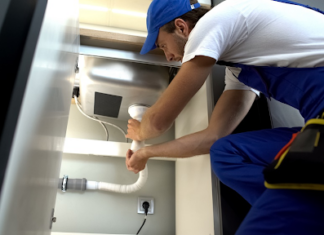Introduction
Diarrhea is a frequently occurring illness in canines, and pet owners must be mindful of it. Numerous distinct elements can result in diarrhea, from food indiscretions to contaminations. Hence, it is critical to be aware of the markers and indications of diarrhea in dogs so that you can take appropriate steps to aid your pet. This article will present an overview of the prevalent causes of diarrhea in dogs and the signs and symptoms to be wary of.
What Causes Diarrhea in Dogs?
There are several potential causes of diarrhea in dogs. The most common cause is dietary indiscretion when a dog consumes something it should not have eaten. This could be anything from spoiled food to garbage, and it can cause an upset stomach and diarrhea. Other potential causes include parasites, viral or bacterial infections, and certain medications. In some cases, the cause of diarrhea may not be immediately apparent, and a veterinarian may need to be consulted to identify the cause.
Signs and Symptoms of Diarrhea in Dogs
A dog’s most obvious sign of diarrhea is a watery stool or loose bowels. It is typical for a puppy to experience a higher recurrence of entrail developments and additionally expanded desperation when required to discharge. In certain occurrences, the looseness of the bowels may be joined by spewing or loss of craving. Different indications can likewise join diarrhea, for example, sluggishness, drying out, fever, or stomach torment.
In addition to the telltale signs and symptoms outlined above, there may be other clues that your pet suffers from diarrhea. These can encompass augmented thirst, weight reduction, and lessening vigor. If your canine has been manifesting any of these signs, it is important to take them to the veterinarian for an assessment. Your vet may need to carry out tests like fecal exams and blood tests to identify the cause of diarrhea. Depending on the origin of diarrhea, therapy may include antibiotics, dietary changes, probiotics, or other medications. In some instances, diarrhea may solve on its own without any treatment. It is also essential to ensure that your pet is up to date on all their vaccinations, as this can help safeguard against certain types of infections that can cause diarrhea. By being mindful of the signs and symptoms of diarrhea in dogs and taking suitable action, you can help guarantee that your pet remains healthy and content.
Diagnosis and Treatment
If your canine is displaying manifestations of looseness of the bowels, it is imperative to counsel your vet rapidly. Your vet may need to do tests, such as fecal and blood tests, to decide the wellspring of the looseness of the bowels. Contingent upon the cause, treatment may include anti-infection agents, dietary changes, probiotics, or different meds. Now and again, the looseness of the bowels may settle without any treatment. In more extreme cases, your vet may need to give intravenous liquids to the right drying out and electrolyte lopsided characters. In addition, your veterinarian may also recommend dietary changes to help improve your pet’s digestive health.
Prevention
The optimum technique to forestall diarrhea in canines is to provide them with a harmonized diet and verify that they are not ingesting anything that could be detrimental. If your dog has access to refuse or other prospective sources of pollution, make certain that these domains are safeguarded to obstruct your pet from entering them. It is also indispensable to guarantee that your pet is up-to-date on all vaccinations, as this can help protect against specific types of contaminations that can cause diarrhea. Additionally, it is important to keep your pet’s environment clean and free from parasites, as these can also cause diarrhea. Contact your veterinarian for advice if you suspect your pet has eaten something it shouldn’t have.
Conclusion
In conclusion, it is essential to be aware of the indicators and indications of diarrhea in canines and to take fitting activity if your companion demonstrates any of these markers. Early identification and intervention are integral to aiding your pet to regain rapidly and forestalling extra intricacies. Moreover, anticipatory steps such as an evenhanded diet and keeping your pet distant from possible sources of taint can assist in diminishing the likelihood of diarrhea. Through reasonable care and consideration, you can assist in guaranteeing that your pet remains vigorous and content. You can help keep your pet fit and clear of diarrhea through meticulous care and consideration.







